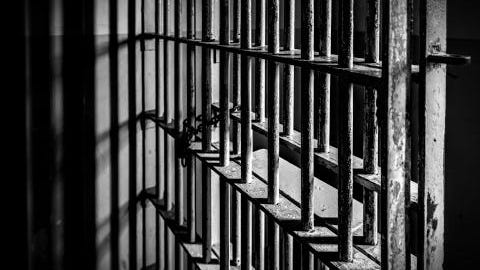The L.A. County Board of Supervisors will vote Tuesday on a plan that will allow people in jail to make phone calls free of charge. If approved as expected, it would mark a major victory for criminal justice reform advocates, who say forcing incarcerated people to make collect calls is an unfair burden.
“More than 80% of the people in our jails are from under-resourced communities of color,” Supervisor Hilda Solis said in a statement. “Asking that families take on the burden of costly phone calls is unfair and inequitable.”
Under the county’s plan, Public Communications Services Inc. will provide telephone service at a cost to the county of $32 million over a 29-month period starting Dec.1. The cost-per-minute would range from 39 to 42 cents per minute.
Free phone calls will also be available in juvenile halls and camps run by the Probation Department.
Current calls charge ‘exorbitant fees’
The jail population in L.A. County is more than 14,000. The size of the contract illustrates how much friends and family have been paying to talk to incarcerated people, said Sam Lewis, executive director of the Anti-Recidivism Coalition.
“The county has basically preyed on the families of incarcerated people” by passing on “exorbitant fees” from contractors, said Lewis, who noted the costs are far higher than the cost of a cell phone call. He said a 15-minute call can cost $3.
He also said it’s in the interest of community safety to make it easy for people in jail to call outside.
“It’s vitally important to keep a person connected to their family. That’s part of the rehabilitation process,” Lewis said. “Psychologically, it damages hope” when someone is unable to talk to people who support them.
Two years ago, the board initially voted to study the idea of making phone calls free. In July, it voted to do so, asking Sheriff Robert Luna to develop a plan.
The move followed the filing of a lawsuit against L.A. County that called the cost of phone calls “extortionate and outrageous.” The April legal action by inmate advocates accused the county, through its contractors, of marking up the cost of both phone calls and jail commissary items like food and hygiene products so much that it amounted to an illegal tax.
The lawsuit seeks to force L.A. to repay inmates and their families for nearly two years of inflated charges.
Free calls would end a years-long effort
“The charges at issue work a terrible hardship, and unlawfully put the burden on inmates’ families, friends and associates of paying for County services and costs that are rightfully the responsibility of the taxpayers and society at large,” the lawsuit states.
The lawsuit quotes a 2014 remark by then-Supervisor Zev Yaroslavsky as an example of how long the board has known about “the injustices they are inflicting.”
“Everyone’s making a lot of money at the expense of inmates’ families,” Yaroslavsky said. “They’re in jail. They’re paying their debt to society. That doesn’t give us the right to fleece them.”
L.A. County has no plan to address commissary costs at this time.
L.A. will become the largest local jail system in the country to provide free phone calls for incarcerated people. A state law that made phone calls free in state prisons went into effect on Jan. 1, but that law doesn’t apply to county jails. San Francisco also does not charge people in its local jails for phone calls.
One of the challenges supervisors face is how to replace the fees they will lose when the phone calls become free. The roughly $30 million per year raised from phone calls is used to pay for jail maintenance and education programs.
In July, the supervisors directed county staff to look at drawing down the $48 million in revenue from the phone calls that’s piled up in recent years.
Supervisors say money from the phone calls has been misspent — and they don’t have clear tracking on where it ended up. A 2021 county audit found the Sheriff’s Department may have been illegally spending almost half of the jail phone fees on jail maintenance, despite state law restricting its use for maintenance and requiring that the money mainly be used for the education and well-being of people incarcerated.
What questions or concerns do you have about civics and democracy in Southern California?
Frank Stoltze explores who has power and how they use it at a time when our democratic systems have been under threat.
This post was originally published on this site be sure to check out more of their content.














